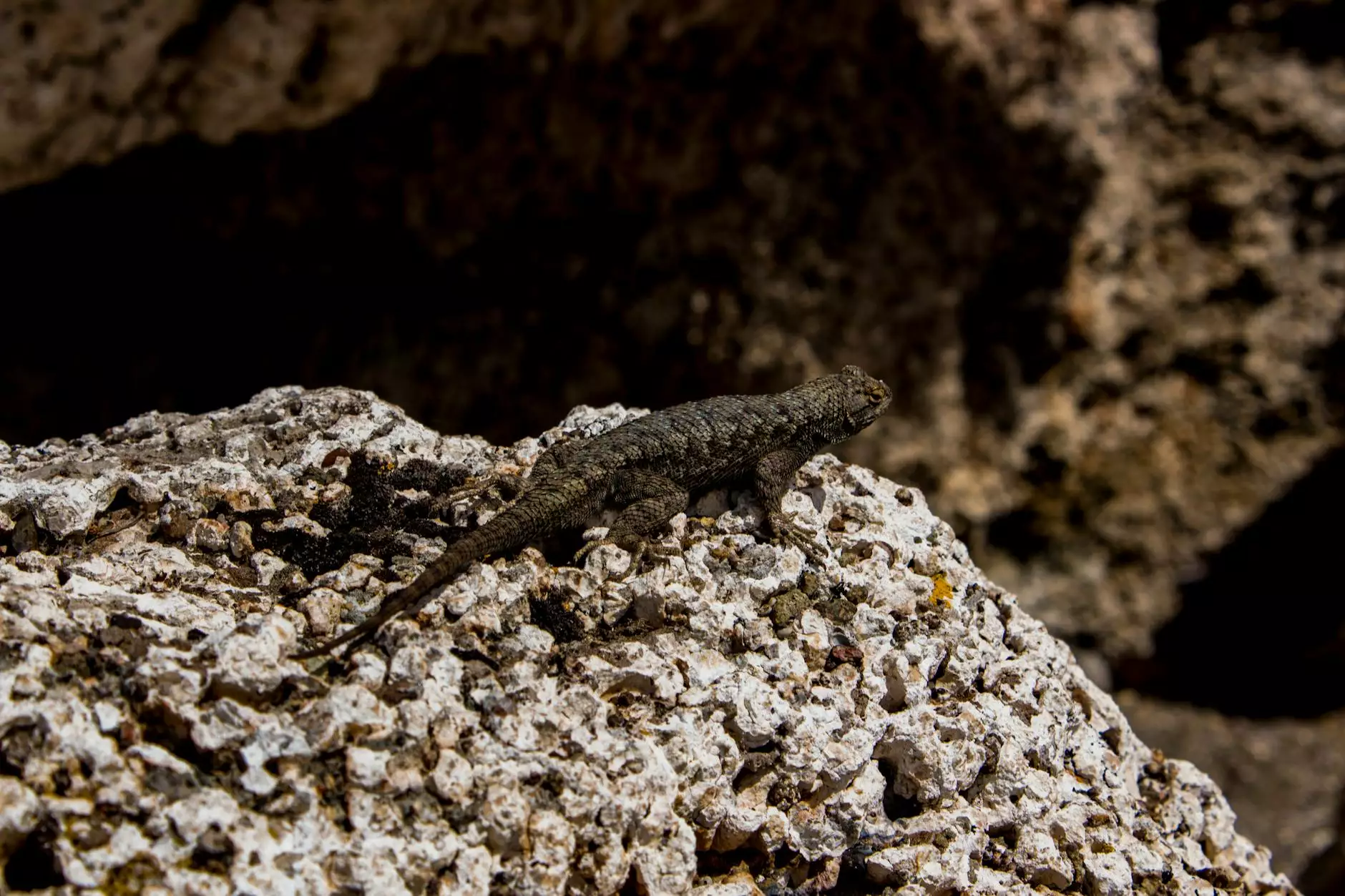Discovering Exotic Lizards for Pets: Your Ultimate Guide

There is something extraordinarily captivating about exotic lizards for pets. For many reptile enthusiasts, these unique creatures represent not only a passion but a lifestyle. They are not just pets; they are companions that mesmerize their owners with their vibrant colors, intriguing behaviors, and the exotic allure they bring into homes. This comprehensive guide will delve into the world of exotic lizards, providing essential insights on choosing, caring for, and understanding these fascinating reptiles.
Understanding Exotic Lizards
Exotic lizards are a diverse group, comprising many species that originate from different parts of the world. Each species has its own unique traits and needs, which makes it crucial for potential lizard owners to conduct thorough research.
- Popular Species: Some of the most beloved exotic lizards for pets include:
- Bearded Dragons - Known for their docile nature and friendly demeanor.
- Leopard Geckos - A great choice for beginners, known for their ease of care.
- Blue-Tonged Skinks - Famous for their distinctive blue tongues and affectionate personalities.
- Iguanas - Larger lizards that require more space and specialized diets.
- Skinks - Another popular choice with a wide variety of species.
Choosing the Right Exotic Lizard
When considering an exotic lizard for your home, it is vital to assess various factors to ensure that both you and your new pet can thrive together. Here are some key considerations:
1. Size and Space Needs
Different lizard species vary in size. For instance, a bearded dragon requires a spacious enclosure, while a leopard gecko can thrive in a smaller setup. Always research the specific habitat requirements of the species you are considering.
2. Temperament
Understanding the behavior of your potential pet is crucial. Some lizards are more social and enjoy human interaction, while others may be more solitary. Selecting a species that matches your lifestyle and expectations is essential.
3. Diet Requirements
Exotic lizards come with specific dietary needs. Herbivores, carnivores, and omnivores require different types of food. Be sure to learn about the dietary habits of your chosen species to ensure you can meet their nutritional needs.
4. Lifespan
Many exotic lizards can live for several years, with some species even reaching over a decade. Consider the long-term commitment required to care for your pet properly.
Setting Up the Ideal Habitat for Exotic Lizards
Creating the perfect environment for your exotic lizard is fundamental to its health and happiness. Here’s what you need to know about setting up a suitable habitat:
1. Choosing the Right Enclosure
Enclosures vary according to the species. For larger lizards like iguanas, a spacious cage with height is necessary, whereas smaller species like leopard geckos may thrive in a terrarium. Ensure the enclosure is secure, as exotic lizards can be escape artists.
2. Temperature and Lighting
Temperature gradients are essential for lizards, who are ectothermic (cold-blooded). Your lizard will likely need a basking area and a cooler section in its habitat. Proper UVB lighting is also vital, as it helps with calcium absorption and prevents metabolic bone disease.
3. Humidity Levels
Different species have varying humidity needs. Use hygrometers and humidity gauges to monitor the levels within the enclosure. Provide water bowls and misting systems as needed to maintain the right humidity.
4. Substrate and Decor
Choosing the right substrate is important. Options may include reptile carpet, aspen bedding, or sand depending on the lizard. Add rocks, branches, and hides to create a stimulating environment that allows for exercise and mental engagement.
Caring for Your Exotic Lizard
Caring for an exotic lizard involves more than just setting up an enclosure. Here are essential care guidelines to follow:
1. Feeding
Provide a well-balanced diet according to your lizard's dietary needs. Here are some feeding tips:
- Herbivorous Lizards: Greens, vegetables, and fruits.
- Carnivorous Lizards: Insects, small rodents, or specially formulated diets.
- Omnivorous Lizards: A combination of both plant and animal matter.
2. Hydration
Although some lizards may not require constant access to water, providing fresh water daily is crucial. Some species enjoy soaking, so including a shallow dish for them to bathe in is beneficial.
3. Regular Health Checks
Monitoring your lizard's health is vital. Common signs of health issues include changes in appetite, lethargy, and unusual shedding patterns. Regular vet visits are advisable to ensure your pet remains healthy.
4. Handling and Socialization
Many exotic lizards can be social and enjoy handling. However, always approach your pet gently and allow it to acclimate to your presence. Frequent, gentle interactions can lead to a more relaxed and friendly reptile.
Common Challenges with Exotic Lizards
Owning an exotic lizard can come with its own set of challenges. Awareness and preparation can help overcome these obstacles:
1. Behavioral Issues
Some lizards may exhibit stress or aggression when improperly handled or if their habitat is not set up correctly. Understanding your lizard's behavior and providing a comfortable environment is key.
2. Health Issues
Many lizards face specific health concerns such as metabolic bone disease, respiratory infections, or parasites. Research the potential health challenges for your species and take preventive measures.
3. Environmental Control
Maintaining the right temperature and humidity is essential. Invest in quality thermometers and hygrometers to ensure the habitat meets your pet's needs.
Where to Find Exotic Lizards for Pets
When you're ready to welcome an exotic lizard into your home, finding a reputable breeder or pet shop is crucial:
1. Reputable Breeders
Look for professional breeders who specialize in specific species. A reputable breeder will provide health guarantees, documentation, and care instructions.
2. Exotic Pet Stores
Choose pet stores with a reputation for quality care and healthy animals. Ask about the store's hygiene practices and the health of their animals.
3. Rescue Organizations
Many reptiles need loving homes through rescue organizations. Adopting a lizard not only saves a life but also gives you a unique companion.
Conclusion
Exotic lizards for pets offer a unique and rewarding experience for pet owners. By understanding their needs and preparing to meet them, you can establish a harmonious bond with your new companion. Remember that owning a lizard is a long-term commitment that enriches both your life and that of your extraordinary pet. Whether you choose a bearded dragon, a leopard gecko, or another exotic species, the joy and beauty these reptiles bring into your world are unparalleled. Start your adventure today and become part of the vibrant community of reptile enthusiasts!









